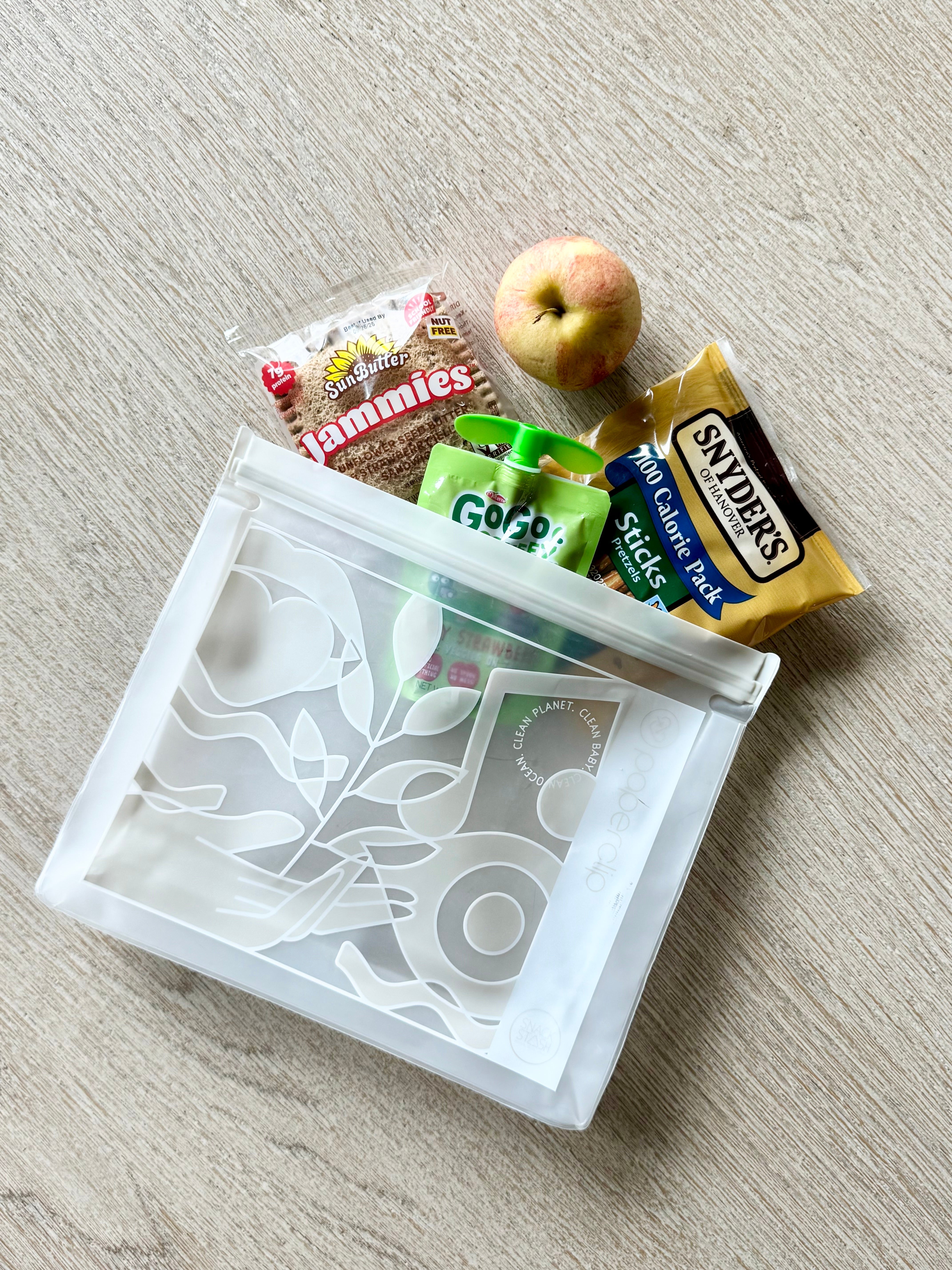Caring for an infant can be overwhelming. You've read all of the books while pregnant, spent time on message boards seeking out advice from experienced mothers, and even poured over every article that you could find on the internet. But none of that properly prepared you for the realities of motherhood.
Instead of feeling completely over your head the second that your new baby starts crying, try to simply focus on these 15 tips. They'll help you take the best possible care of your infant.
1) Swaddling Really Does Work
One of the best ways to soothe your infant is to treat them as if they're still in the womb. This means that swaddling, the act of carefully wrapping your baby in a special blanket designed for this purpose, works quite well.
The blanket provides plenty of comfort, as well as warmth, as long as it's wrapped correctly. Remember that the baby's arms and legs should be fully covered by the blanket, and it should be secure but not overly tight. Swaddling works fine until your little one is big enough to wiggle free of the blanket, so enjoy this snug sleeping time while it lasts.
2) Try to Sleep When the Baby Is Sleeping
Although it may seem more like an "old wife's tale" than an actual saying that works in this day and age, you really should try to sleep when your baby is sleeping. You might think that you have too much to do while they're asleep, like showering, laundry, dishes, and so on, but it's important that you get the sleep you need so that you can function properly. You will be tired but not so tired that you aren't able to care for your little one.
3) Get Breastfeeding Advice from the Experts
Breastfeeding is good for your child, but it can be hard to get them to latch on, stay focused on drinking/eating, and stay awake while they are attached to your nipple. Some babies have issues latching on, while others aren't able to suck properly to get all of the nutrients that they need.
If you have issues while breastfeeding your infant, we don’t ever want you to feel like a failure. You’re not alone! Instead, reach out and get plenty of advice. Everyone from the lactation counselor at the hospital to experts in private practices can help. There's nothing wrong with asking for help.
4) Be Prepared with Plenty of Supplies
You'd be surprised at just how many different things your baby needs throughout the day. Things like burp cloths, diapers, onesies, and more are just a few examples of the items that you can never have enough of.
Whether you’re having your baby at home or in the hospital, you won’t want to wait to prep their room and stock up on essentials. In fact, while you're doing so, pack a diaper bag as well, so that you'll have everything that you need while you're on the go.
5) Ask for Help
Don't attempt to do everything yourself. There's nothing wrong with allowing your significant other, parents, friends, or even close neighbors to help. Even if you just need someone to hold the baby for a few hours while you get a few chores done or take a nap, don’t hesitate to ask for help. You aren't alone in this journey.
6) Get Feeding Down Pat
Depending on the age of your baby, they may only spend ten to fifteen minutes (for the youngest ones) breastfeeding at a time. They need to do this every few hours, even if they don't wake up to do so. This means that you'll have to keep them on some kind of schedule, and sometimes, you’ll have to do the unthinkable – wake your baby – so that they can feed.
However, while breastfeeding, it can be tough to track how much they are eating. If you choose to pump and bottle feed or use formula, it's easier to keep an eye on how they're ingesting. But either way, get in your groove and stick with it!
7) Always Burp Your Baby
Babies don't have the burp reflex that adults do, making it possible for air bubbles to get stuck in their esophagus, causing discomfort and leading them to cry. Make sure to place a burp cloth over your shoulder, lean your baby gently over it with their back facing out, and burp them gingerly after each feeding. Be patient. Burps are surely on their way!
8) Place Your Baby on Its Back to Sleep
This is one thing that has been tested time and time again. You need to place your baby on its back when they are sleeping. Otherwise, you run the risk of SIDS. Your little one may move around a bit in their sleep, so keep an eye on them and be prepared to move them back onto their back when necessary.
9) Find Out What Soothes Them
What makes your baby feel calm? In some cases, it could be a good swaddle that keeps them warm and makes them feel secure. In others, a gentle rocking motion or even a short ride in a car may bring them comfort.
If you're worried about what may or may not soothe them, then experiment a bit. Remember that every baby is different and what works for one may not for the other. Trial and error is definitely a necessary part of parenting.
10) Take Proper Care of the Umbilical Cord Stump
For the first ten days or so of your baby's life, they'll have an umbilical cord stump attached that will eventually become their belly button. Be careful not to bathe them until the stump naturally falls off, and don’t do anything to make the stump fall off faster. It will do so on its own.
Messing with the umbilical cord stump can lead to infection and other issues. So, remember to clean the area well with a little rubbing alcohol and a clean cotton swab, and leave the rest to Mother Nature.
11) Use a Diaper Rash Cream When Necessary
Babies get diaper rash. It's a natural part of life (even though every parent dreads it). Trust us - even if you change their diaper the second that it's wet or dirty, they may still end up with diaper rash. So, don’t get discouraged or blame yourself. When you see those first signs of redness and irritation, simply reach for the diaper cream or a more natural, eco-friendly option like coconut oil, to make it all better.
12) Hold Your Baby Properly
When your baby first comes home from the hospital, they won’t be able to support their own head, so you'll need to do this for them. Always keep one hand gently on the back of their head, supporting it, while watching out for their soft spot. As your baby gets older and can support their own head, you can change up how you hold them, keeping their comfort in mind the entire time.
13) Don't Forget About Tummy Time
The American Academy of Pediatrics says parents can start tummy time as early as their first day home from the hospital. Start practicing tummy time 2-3 times each day for about 3-5 minutes each time, and gradually increase tummy time as baby gets stronger and more comfortable. Start out by laying them on a blanket on their stomach for about 15 minutes at a time, keeping an eye on them, of course.
As they get used to being on their tummies and grow older, you can leave them there for longer periods, once again, as long as you watch them carefully. This is a crucial practice that not only prevents your baby from getting flat spots on their skull, but also to give them the strength that they'll need for rolling over and crawling eventually.
14) Realize That Changing Their Clothes Won't Hurt Your Baby
It's important to keep your baby clean and neat, which means that you'll need to change their clothing on a regular basis, sometimes even multiple times a day, depending on spit-up, diaper blowouts, and plenty of drool.
At the same time, you may feel as though it will hurt your baby to get their arms through those tiny sleeves. Although you do need to be gentle and should avoid handling them roughly, rest assured that you aren't hurting your little one when you're changing their clothing. Showing off their little personalities with their outfits is completely okay!
15) Learn What Their Cries Mean
At first, it may seem as though all of your baby's cries sound the same, making it tough to determine what they're trying to tell you. However, if you focus on things like their pitch, crying pattern, and volume, you'll eventually be able to tell them apart.
Once you can decipher which cries mean what, you'll be in a better place to anticipate your infant's needs since you can tell a dirty diaper cry from an “I'm hungry, feed me now” wail.
In Conclusion
The first few months of parenthood are going to be hard and tiring, but also so rewarding. There will be times when you feel as though you're out of control and everything is changing too quickly. Not to worry - this is completely normal because you're adjusting to the rhythms of your new baby.
And that’s why we’re here to help! These 15 tips, all designed to help you, will make this transition much easier. Make sure to follow them (or at least the ones that seem to fit your situation) as best you can, and you'll be glad that you did. Because having a baby is the best journey of all, so soak it up!
Sources:
Your Newborn: 30 Tips on Feeding, Soothing, and More for the First 30 Days | Parents
A Guide for First-Time Parents (for Parents) - Nemours | Kids Health
Popular Articles
Help! My Silicone Tastes Like Soap!
Back-to-Preschool, the Eco-Friendly Way: 7 Simple Swaps for Greener Mornings
If you're looking to make mornings smoother and more sustainable, here are 7 simple, eco-friendly swaps perfect for preschoolers and the grownups who love them.
Read More






